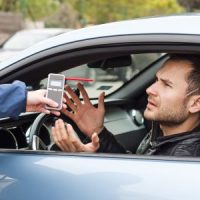Does Suspicion of DUI Create an “Exigent Circumstance” in Florida?

There are certain emergency situations where a police officer may conduct a warrantless search in connection with a criminal investigation. A common example of such “exigent circumstances” is where police believe that a suspect is about to destroy potential evidence–e.g., flushing drugs down the toilet–so an immediate entry is justified even if the officers have not first obtained a warrant. But as the Florida Second District Court of Appeal observed in a recent decision, State v. Harris, “officers may not create exigent circumstances by their own conduct.”
Court Throws Out Results of Blood Draw in DUI Manslaughter Case
Indeed, the Harris case involved a trial court granting a defense motion to suppress in a DUI case. Police responded to the scene of a fatal car accident. Approximately 90 minutes after the accident, a police officer administered field sobriety tests to the defendant, who was one of the drivers involved. Eleven minutes later, according to court records, an officer ordered medical personnel to conduct a warrantless draw of the defendant’s blood.
Roughly 30 minutes later, the police obtained a search warrant for the defendant’s blood. The officers then ordered a second blood draw, which was taken about an hour after the first one. Based on this and other evidence, the state eventually charged the defendant with DUI manslaughter and vehicular manslaughter.
Before the trial court, the State Attorney argued that “exigent circumstances” justified the first, warrantless blood draw. Specifically, the state maintained that the police needed to draw the defendant’s blood right away, as the amount of alcohol in his blood would dissipate while the officers waited to obtain a search warrant. Both the trial judge and the the Second District rejected that position, however, explaining that “in DUI cases the dissipation of blood alcohol levels alone is not a legally cognizable exigency.”
According to binding precedent from the United States Supreme Court, the Second District continued, there must be “some other factor” that “creates pressing health, safety, or law enforcement needs that would take priority over a warrant application.” Here, there was no such need. To the contrary, the police could have easily obtained an immediate search warrant from the scene of the accident. There was a judge “on call” who could be reached by telephone or email. And in fact, it only took the police about 20 minutes to finally obtain a warrant.
The Second District also rejected the state’s alternative theory, which was that the first blood draw was justified under the “inevitable discovery” exception to the Fourth Amendment. This is where otherwise illegally obtained evidence is inadmissible if the police would have inevitably discovered it through legal means. The appellate court said that as with the exigent circumstances exception, the inevitable discovery exception also did not apply to the facts of this case.
Contact an Orlando DUI Lawyer Today
Drunk driving carries serious consequences in Florida, particularly in cases where a person is injured or killed. It is therefore crucial to work with a skilled Orlando DUI lawyer who can advise you of your rights and defend you in court. Call the Joshi Law Firm, PA, today at 844-GO-JOSHI or contact us online to schedule a free initial consultation.
Source:
2dca.flcourts.gov/content/download/2442014/opinion/Opinion_2023-1430.pdf

